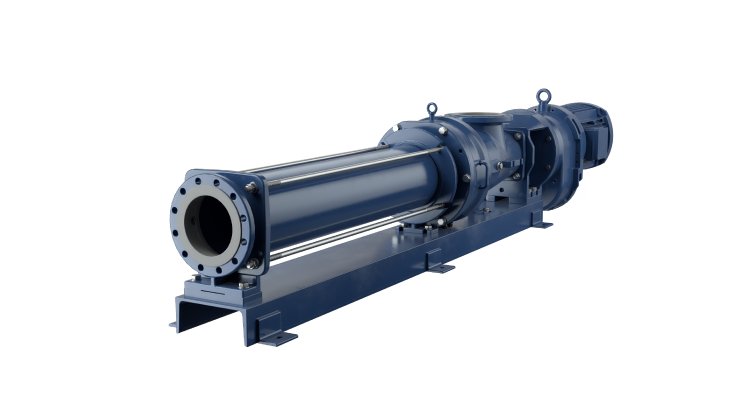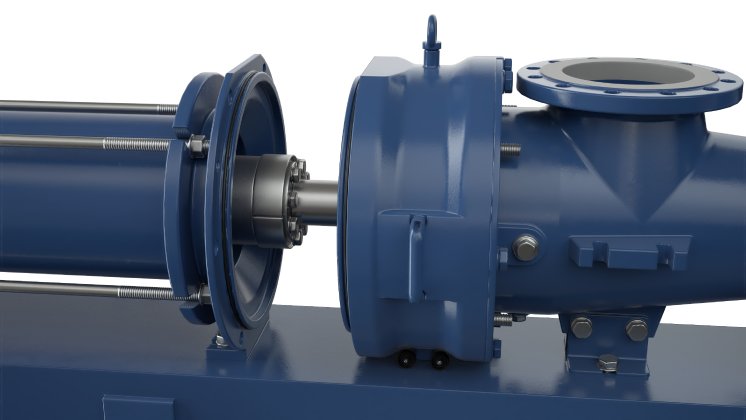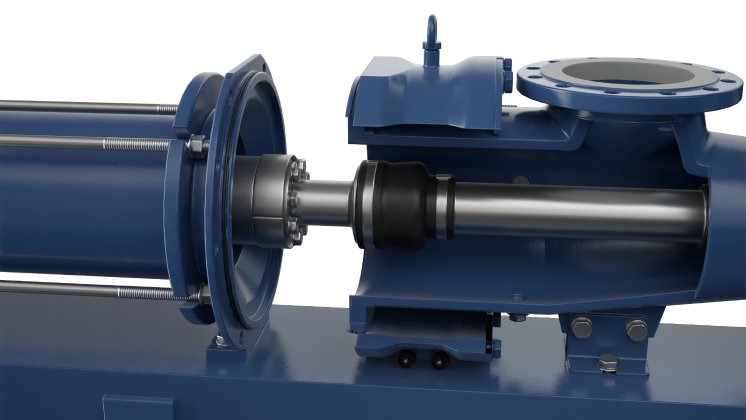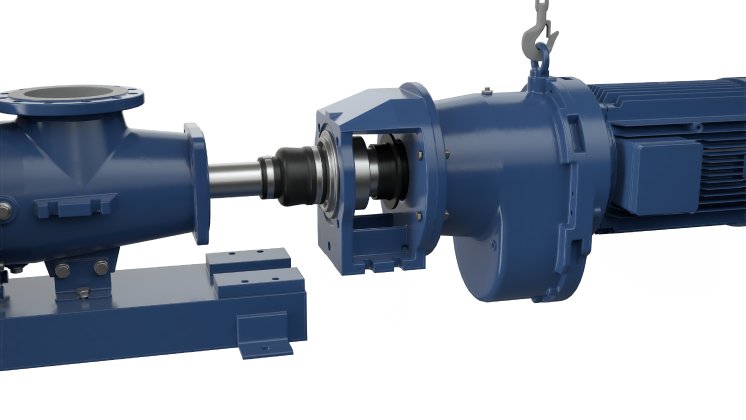Rotor Joint Access and Drive Joint Access for hopper pumps were the inspiration
The individual components for large pumps often weigh several hundred kilos. From the piping to the pressure branch, stator and suction casing, almost the entire pump has had to be taken apart for the maintenance of our “giants” until now. Often it has even been necessary for them to be transported to a workshop. The maintenance could therefore extend over several days, meaning high costs and an enormous amount of work for the system operator.
RJA and DJA for the new BNM range from SEEPEX provide a solution with user-friendly and cost-saving maintenance technology for the large models with an individual component weight of up to 300 kg. The maintenance solutions were developed on the basis of the already well-established Drive Joint and Rotor Joint Access solutions, which make the maintenance of hopper pumps easier and provide easy access to the joints and seals.
Technically, however, the maintenance solution for large standard pumps is different from that of hopper pumps. In the case of hopper pumps, two sliding housing elements at the beginning and end of the hopper provide access to the rotor- or drive-side joint. For the considerably shorter block pumps, RJA and DJA make do with only one sliding housing element at the rotor connection. Access to the drive-side joint and the seal is made possible by the foot that is additionally attached to the suction casing. The entire rotating unit can therefore be removed without the need for an additional sliding housing section on the drive side.
Loosening the Rotor with a Wrench
"RJA and DJA will make things immensely easier for mechanics on site in the future. Even non-professionals can maintain the pumps. With a simple wrench, the rotating unit can be loosened to change the rotor and stator,” promises Jörg Brune, Head of Mechanical Development and Innovation Strategies at SEEPEX. For standard maintenance situations such as a rotor, stator or mechanical seal replacement, SEEPEX expects a drastic reduction of 80% in the time required. The reason for this is that flanges and joints can remain mounted. This increases the operating time, while the regular, simple inspection and maintenance of the wearing parts with standard tools ensures trouble-free operation.
Unique Patented Solution
Previously, with standard pumps, the retaining straps of the sleeves had to be cut open and the joint dismantled for inspection and maintenance. During reassembly, the joint parts had to be reinserted, the sleeve pushed over the joint with a lot of force and the sleeve filled with grease again. New retaining straps would have to be fastened again with a special tool. SEEPEX’s special rotor connection makes it possible now for the joints of the pump to remain mounted for the replacement of the rotor. This solution is unique; until now, other manufacturers have performed the separation process behind the joint or in the middle of the coupling rod, requiring the joint to be dismantled to replace the rotor. RJA and DJA for large standard pumps are already patented in Germany, France, Great Britain and Denmark.
Innovations for Maintenance
With this solution, which will be available from the spring of 2021, SEEPEX is once again underlining its market leadership in the field of innovative maintenance solutions. These include the Smart Conveying Technology (SCT), which was introduced in 2008 and still sets standards in the maintenance of smaller standard progressive cavity pumps. While RJA and DJA is a tubular stator-based maintenance solution for large pumps, SCT relies on a two-part stator that allows the pump to be assembled and disassembled in a space-saving manner with just a few hand movements. SEEPEX is one of the world's leading specialists in the field of pump technology. The product portfolio comprises progressive cavity pumps, pump systems and digital solutions. SEEPEX also offers innovative solutions for the conveyance of aggressive or abrasive media with low to high viscosities. The company was founded in 1972 and has more than 800 employees at locations in 70 countries, with 423 of them working at the company's headquarters in the German city of Bottrop.






